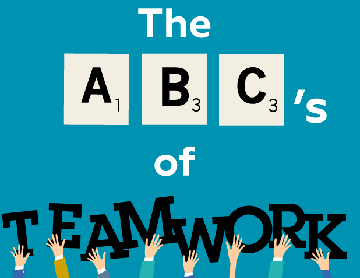Soft Skills and Career Advancement

Even if you have a reputation of being the best at what you do, it will amount to little if you are unable to work well with others. According to recent research from the Deloitte Access Economics report, while the Australian workforce has a strong soft-skill base for now, the current rate of training around soft skills will not be enough to keep up with the demand for soft skills in the future.
What are soft skills? Unlike hard skills, which can be proven and measured, soft skills are intangible and can often be difficult to quantify. The report from Deloitte revealed the specific types of soft skills many employers will be looking for now and for years to come. These mainly included analytical thinking, verbal and written communication, and leadership.
With the demand for soft skills on the rise, it is important for everyone to consider how the focus on these often difficult to quantify skills will affect their career progression in the future.
One of the reasons that soft skills are now so revered is that they are the best tools to help facilitate better human connections, and therefore encourage closer and more productive working relationships between teams and colleagues. Critical soft skills for this development of positive interpersonal behaviour such as communication, presentation skills and conflict management abilities should be the focus of any training in the soft skills area. While these skills have been identified as essential for the future, often employees are seldom given the opportunity to develop these soft skills for their own benefit.
However, if you are given the opportunity to develop your soft skills through training and development, you will be taking advantage of improving a suite of skills that will steer you closer towards your larger career goals. Some of these key soft skills may be:
- Honing of a more positive attitude – generation of strong, positive energy throughout a workplace encourages others to be optimistic and upbeat in the face of difficulties. The Performance Edge is a key course to cultivate an ‘Above the Line’ attitude in work and personal life.
- Ability to work under pressure – the ability to still do your best work under pressure is an invaluable asset to yourself and others.
- Better problem-solving skills – stronger problem-solving skills will allow you to become more resourceful in times of trial, thereby making you a better resource for others around you. Advanced problem solving skills are fundamental to being an effective manager, the Challenge of Leadership course delves into this in more detail.
- Better flexibility/adaptability – the ability to adapt to changes and new situations is an invaluable skill now
Although soft skills can’t be ingrained in the same manner as hard or technical skills, the good news is that they can still be developed. To benefit from soft skills and develop a successful career, the foremost step for any professional is to develop their self-awareness regarding their own behaviour and gaps in their soft skills knowledge and practice. The ability to direct and fill in opportunity areas highly depends on career ownership and effective management of your own skill gaps, and understanding how these can be filled for your future benefit.
To start your people on the journey to better soft skills, both Thrive Alliance and LMA have a range of short to longer term courses that can help you to achieve your goals. For a course designed to develop the ‘total person’ through permanent behavioural change and a deeper development of soft skills, learn more about LMA’s The Performance Edge course. To learn more about how a better understanding of emotional intelligence in the workplace can assist your leaders and team members, visit Thrivealliance.com.au and view the available short courses here.



